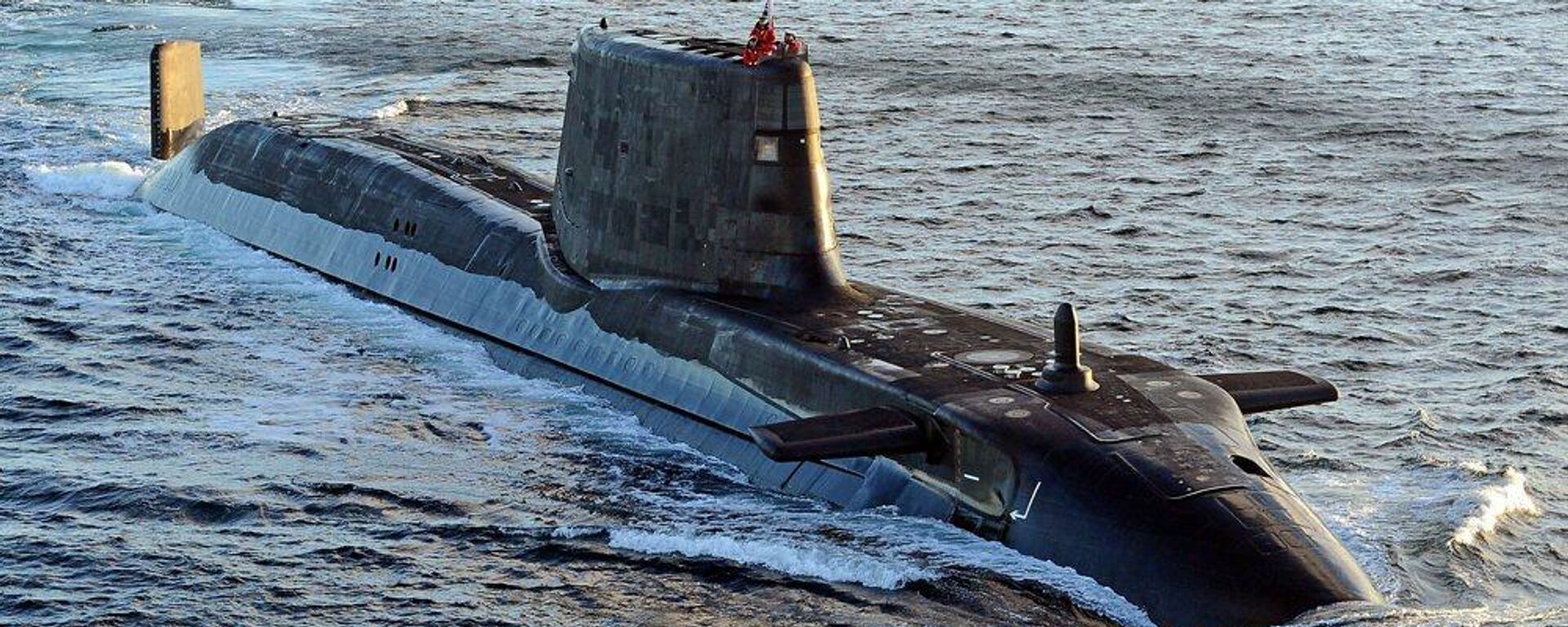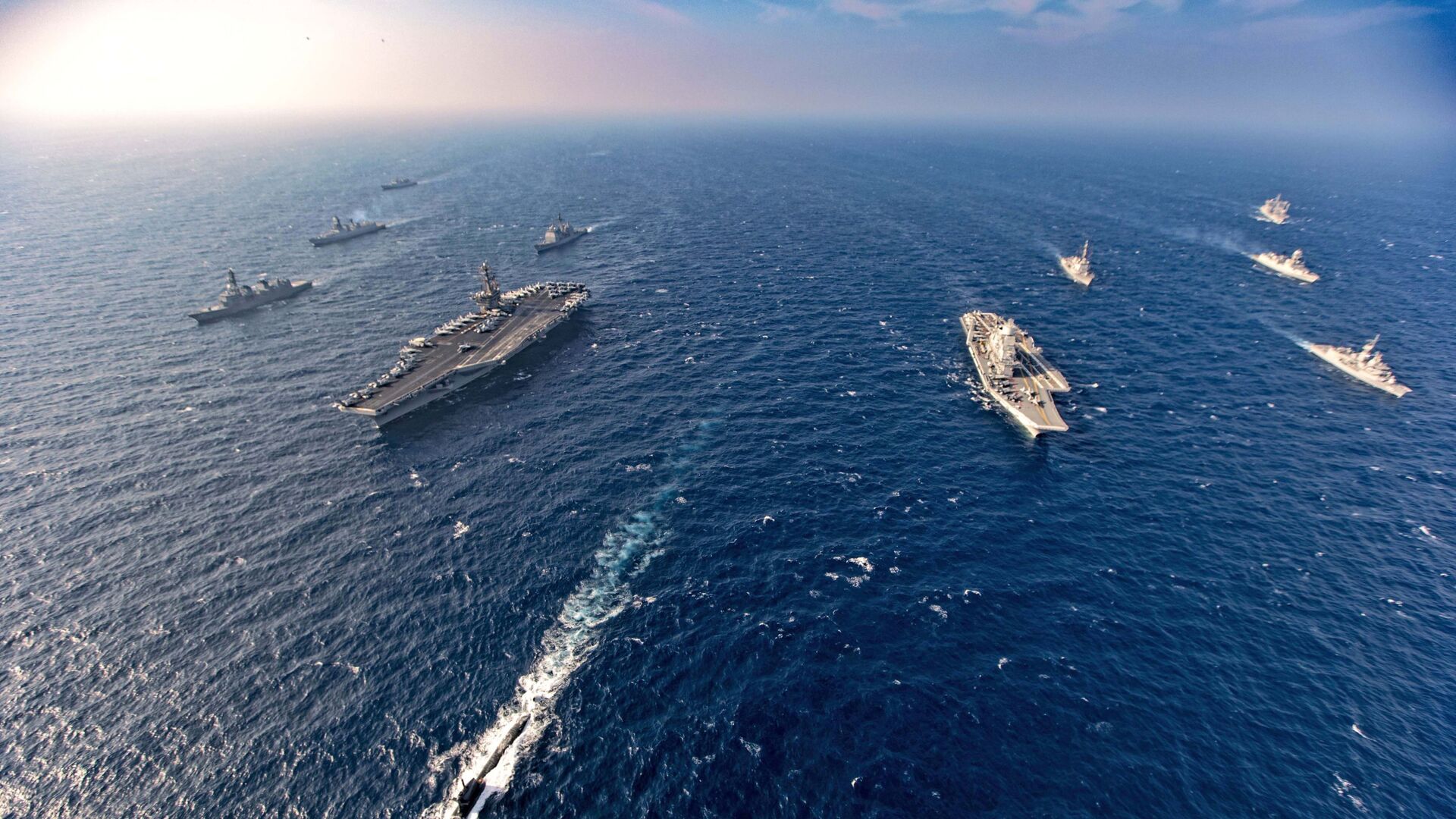https://sputnikglobe.com/20211201/melding-of-services-australia-wont-lose-sovereignty-under-aukus-says-bidens-asia-tsar-1091169180.html
'Melding of Services': Australia Won’t Lose ‘Sovereignty’ Under AUKUS, says Biden’s 'Asia Tsar'
'Melding of Services': Australia Won’t Lose ‘Sovereignty’ Under AUKUS, says Biden’s 'Asia Tsar'
Sputnik International
The AUKUS pact has provoked strong criticism from former prime minister of Australia, Paul Keating who has cautioned that the arrangement could detract from... 01.12.2021, Sputnik International
2021-12-01T16:42+0000
2021-12-01T16:42+0000
2022-10-19T18:35+0000
aukus
joe biden
china
australia
scott morrison
aukus
us
asia
https://cdn1.img.sputnikglobe.com/img/07e5/08/17/1083691415_0:0:3073:1728_1920x0_80_0_0_dfce1ec22aa6d0422911171e1b1d17e5.jpg
Kurt Campbell, a deputy assistant to US President Joe Biden and one of brains behind AUKUS, said on Wednesday that Canberra won’t lose its “sovereignty” under the tri-nation pact which seeks to provide the Royal Australia Navy with US or British technology to build at least eight nuclear-powered submarines (SSNs).The remarks came during a virtual discussion organised by Sydney-based think-tank Lowy Institute, which is hosting the Indo-Pacific Operating System conference.AUKUS involves Australia, the United Kingdom and the US and it was unveiled in a joint statement on 15 September. The US and the UK have made a commitment to help the Royal Australian Navy (RAN) buy advanced nuclear submarines as part of the deal. The pact has triggered strong criticism from Beijing, which has accused the US of “inciting an arms race” in the region.At another security conference last month, Campbell said that AUKUS would lead to “a melding of our services”.He was asked to enlarge on his remarks during the conference at the Lowy Institute.“This [AUKUS] arrangement is supposed to be additive and create new engagements,” replied Campbell.He said that Australian sailors will have the “opportunity” to serve on American vessels and vice versa. He said that American submarines would also be docking at Australian ports more often than before as part of AUKUS.“We will operate with shared respect… Much more than we have done in the past,” Campbell claimed.“For Australia to learn and master nuclear technology of the kind that is presented in these submarines will require the deepest, most profound kinds of engagements with submariners in the United States and Great Britain,” Biden's official also suggested.He added that such a closed arrangement would also lead to “strategic intimacy” among the three allies, which he said would be “extraordinarily important” in the times ahead.Campbell pointed out during the discussion that the US had parted with its advanced nuclear technology only once in the past, when it had shared the SSN technology with the United Kingdom nearly 70 years ago.“It took an ally like Australia for us to persuade some of the folks in the government that this was exactly the right strategic move,” Campbell recalled.He also claimed that AUKUS was an “open architecture” agreement that other willing countries could join at a later date. The US official revealed that many governments had already shown interest in being part of AUKUS.He, however, cautioned that nations which decide to join AUKUS will not be made a party to the US' SSN technology.He suggested that military innovation, cyber and technology were likely areas where other countries could participate in an expanded AUKUS grouping, should it come to fruition at a later date.
https://sputnikglobe.com/20211110/like-throwing-toothpicks-at-mountain-ex-australian-pm-mocks-effect-of-aukus-subs-plan-on-china-1090630038.html
china
australia
Sputnik International
feedback@sputniknews.com
+74956456601
MIA „Rosiya Segodnya“
2021
News
en_EN
Sputnik International
feedback@sputniknews.com
+74956456601
MIA „Rosiya Segodnya“
Sputnik International
feedback@sputniknews.com
+74956456601
MIA „Rosiya Segodnya“
joe biden, china, australia, scott morrison, aukus, us
joe biden, china, australia, scott morrison, aukus, us
'Melding of Services': Australia Won’t Lose ‘Sovereignty’ Under AUKUS, says Biden’s 'Asia Tsar'
16:42 GMT 01.12.2021 (Updated: 18:35 GMT 19.10.2022) The AUKUS pact has provoked strong criticism from former prime minister of Australia, Paul Keating who has cautioned that the arrangement could detract from Canberra’s "strategic autonomy", a concern the former premier shares with the federal opposition, the Australian Labor Party (ALP).
Kurt Campbell, a deputy assistant to US President Joe Biden and one of brains behind AUKUS, said on Wednesday that Canberra won’t lose its “sovereignty” under the tri-nation pact which seeks to provide the Royal Australia Navy with US or British technology to build at least eight nuclear-powered submarines (SSNs).
“I fully understand how important sovereignty and independence is for Australia. So, I don’t want to leave any sense that somehow that would be lost,” said Campbell, often referred to as Biden’s ‘Asia Tsar’.
The remarks came during a virtual discussion organised by Sydney-based think-tank
Lowy Institute, which is hosting the Indo-Pacific Operating System conference.
AUKUS involves Australia, the United Kingdom and the US and it was unveiled in a joint statement on 15 September.
The US and the UK have made a commitment to help the Royal Australian Navy (RAN) buy advanced nuclear submarines as part of the deal. The pact has triggered strong criticism from
Beijing, which has accused the US of “inciting an arms race” in the region.

10 November 2021, 16:03 GMT
At another security conference last month, Campbell said that AUKUS would lead to “a melding of our services”.
“I would think in the next little while we will have more British sailors serving on our naval vessels, Australians and the like, more of our forward-deployed assets in Australia,” the American diplomat said.
He was asked to enlarge on his remarks during the conference at the Lowy Institute.
“This [AUKUS] arrangement is supposed to be additive and create new engagements,” replied Campbell.
He said that Australian sailors will have the “opportunity” to serve on American vessels and vice versa. He said that American submarines would also be docking at Australian ports more often than before as part of AUKUS.
“We will operate with shared respect… Much more than we have done in the past,” Campbell claimed.
“For Australia to learn and master nuclear technology of the kind that is presented in these submarines will require the deepest, most profound kinds of engagements with submariners in the United States and Great Britain,” Biden's official also suggested.
He added that such a closed arrangement would also lead to “strategic intimacy” among the three allies, which he said would be “extraordinarily important” in the times ahead.
Campbell pointed out during the discussion that the US had parted with its advanced nuclear technology only once in the past, when it had shared the SSN technology with the United Kingdom nearly 70 years ago.
“The technology has separated the United States (from the rest) in terms of the undersea operating capabilities for decades,” he remarked.
“It took an ally like Australia for us to persuade some of the folks in the government that this was exactly the right strategic move,” Campbell recalled.
He also claimed that
AUKUS was an “open architecture” agreement that other willing countries could join at a later date. The US official revealed that many governments had already shown interest in being part of AUKUS.
He, however, cautioned that nations which decide to join AUKUS will not be made a party to the US' SSN technology.
“Nuclear arrangements between our three countries will be set aside,” said Campbell.
He suggested that military innovation, cyber and technology were likely areas where other countries could participate in an expanded AUKUS grouping, should it come to fruition at a later date.





